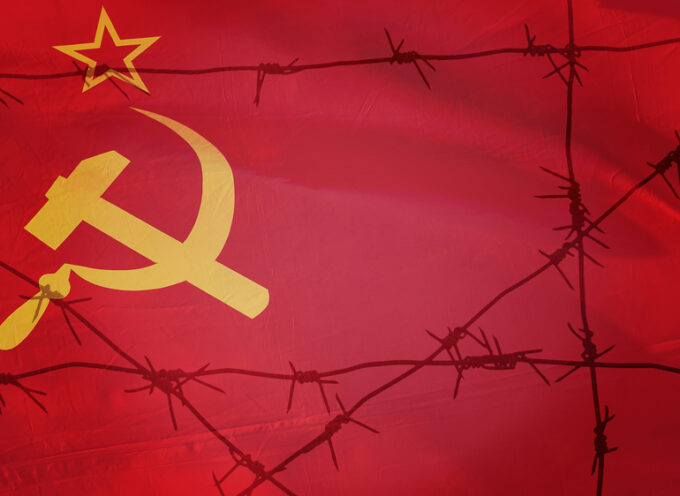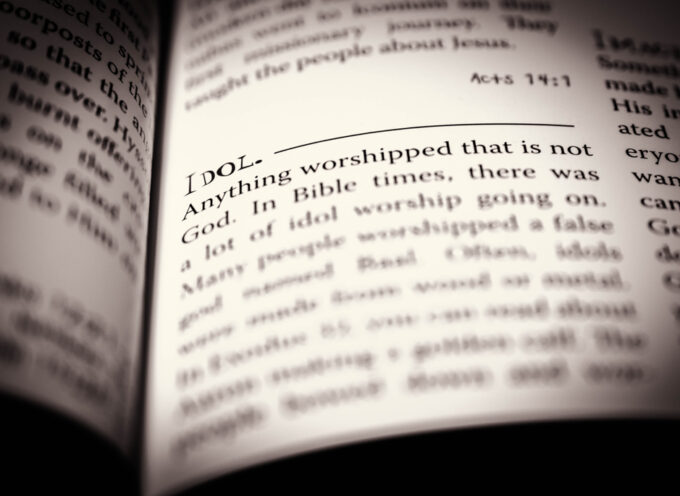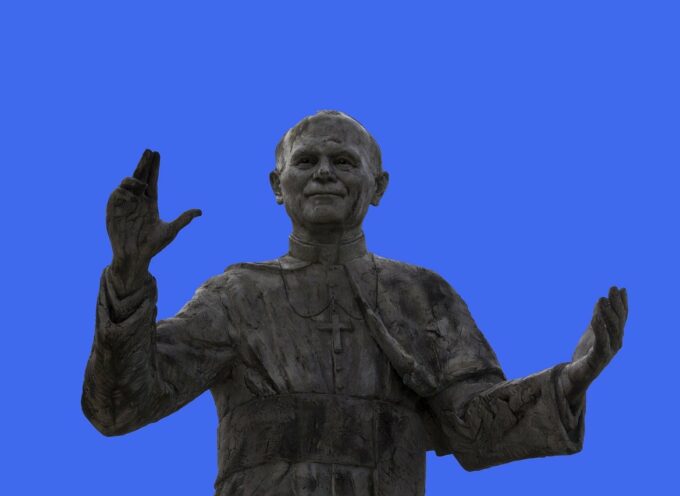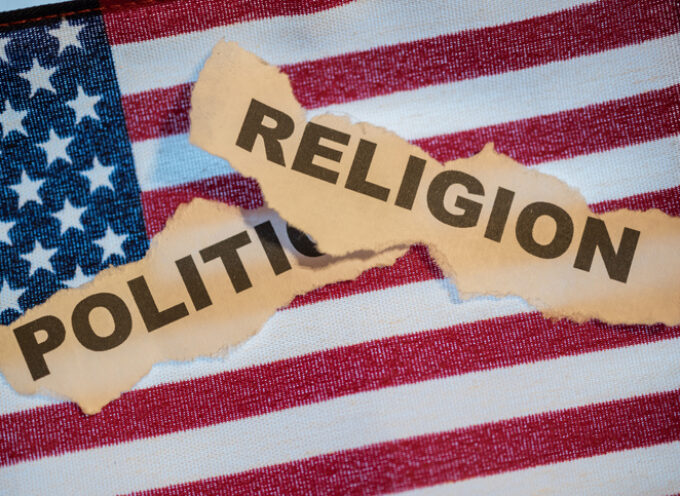As we noted in a recent article, the roots of the just war tradition are found both in the Graeco-Roman tradition and in the biblical witness. Even so, many modern histories of the early church assert that the early church was universally pacifist. In fact, if you mentioned the word “pacifist,” for many today the first word that would come to mind besides “Gandhi” is “Jesus.” Many equate the Christian tradition, at least in its early pre-medieval age, with an antipathy towards war, and call modern Christians who support war hypocrites.
Yet, as James Turner Johnson, J. Daryl Charles, Louis Swift, and other scholars have demonstrated, many early Christians approved of the military profession and even served in the military. For the Christians then, as throughout much of church history, war has been seen as necessary to secure peace and justice. Accordingly, the just war tradition comes into its own at the hands of Christian theologians who embrace both the biblical and Graeco-Roman philosophical admonition for just warfare. In this article, we will highlight some of the greatest thinkers in the just war tradition, starting with the greatest early church theologian, Augustine, and continuing with a concise summary of medieval, and modern just war thinkers.
Augustine
Toward the end of the early church era, the great North African theologian and philosopher Augustine of Hippo (354-430) emerged as a significant proponent of the just war ethic. A concise summary of his mature ethic recognizes at least five principles. First, killing is sometimes justified. Second, war must have a just cause; it must correct a specific injustice. Third, it is best to be patient with offending nations, giving them the opportunity to see the wrongfulness of their ways before deciding to go to war. Fourth, war must be waged by a legitimate authority; Finally, soldiers must recognize certain constraints in war, treating prisoners of war or vanquished foes humanely and fighting with an end goal of peace in mind.
Medieval Christian Just War Thinkers
One of the most influential thinkers in the just war tradition was an Italian monk, theologian, and jurist named Gratian (12th century). His Decretum is the first systematic outline of the just war tradition, written in the aftermath of the First Crusade, reflecting on proper and improper relationships between church and state. Much of Gratian’s Decretum is a compilation of other people’s writings about war and peace, yet a few of Gratian’s convictions can be discerned. First, he believed that lethal force is sometimes justified. Indeed, love sometimes requires the use of force. Second, a just war must be declared formally by a legitimate authority and it must involve the correction of a specific injustice, such as repelling an enemy attack or recovering stolen goods. Third, and unfortunately, Gratian argued that the church may use lethal force against heretics and sometimes against other religions. Finally, Gratian argued that warfighters must fight with the right spirit and intent, must discriminate between combatants and non-combatants, and must fight with an end goal of peace.
Building on Augustine and Gratian’s work was the great Italian monk, theologian, philosopher, and jurist, Thomas Aquinas (1225-1274). He is one of the foremost theological and philosophical minds in Western history, and his influence continues to be felt far and wide. His writings on just war are concise, coherent, and lucid. He frames just war within the Christian doctrine of charity:
To love the good of a city in order to preserve and defend it is to love it in a real sense, and this makes someone a good citizen, in that some people are prepared to subject themselves to the risk of death in order to preserve or increase the city’s good and to ignore their own personal good.
(On Charity)
Aquinas goes on to argue that just warriors must fight with an end goal of peace in mind. A just war must be waged by a legitimate authority who has a just cause and a right intent. Just wars are waged to correct a specific transgression that cannot be rectified in any other manner and it must be motivated by love and toward the end of advancing the common good.
Modern Just War Thinkers
During the early modern period, Protestant theologians Martin Luther (1483-1546) and John Calvin (1509-1564) served as proponents of the just war tradition. Yet, the heavy lifting fell to two Spanish Catholic theologians, a Dutch Protestant jurist, and an English Protestant physician and philosopher. Here, then, is a brief summary of the contributions of Francisco de Vitoria, Francisco Suarez, Hugo Grotius, and John Locke.
Francisco de Vitoria (1483-1546) was a Spanish Catholic theologian, philosopher, and jurist whose writings affirmed the principles of legitimate authority, just cause, right intention, last resort, discrimination, and proportionality. His signal contribution is that he is the first top-rank theologian and philosopher to write extensively on the relationship between just war and international law. Of especial interest is the courage he displayed in arguing that imperial Spain should discontinue its treatment of the “uncivilized Indians “ of the Caribbean as inherently inferior and therefore candidates for slavery.
Francisco Suarez (1548-1617) was a Spanish Catholic theologian and philosopher whose writings affirmed the just war principles of just cause, right intention, legitimate authority, last resort, proportionality, and a reasonable chance of success. Like Augustine, he argues that just warriors must fight with love as their motivation and peace as their end goal. His most significant contribution to the just war tradition is his insistence that just war principles apply normatively to all nations rather than to the so-called “civilized” nations.
Hugo Grotius (1583-1645) was a Dutch Protestant philosopher and jurist who made significant contributions to the just war tradition. His magnum opus, On the Law of War and Peace, is the most comprehensive and systematic account of just war principles before the modern period. In it, he rejects the Machiavellian claim that there is no universal moral law applicable to political realities as well as the Erasmian claim that war is inherently unjust. He affirmed traditional just war criteria, while unfortunately expanding the criterion of just cause to include perceived threats.
Finally, English philosopher John Locke (1632-1704) made a significant contribution to just war thought. His reasoning was essentially secular, though he was not unwilling to reason sometimes from Christian premises. Locke taught that a nation may only wage war to defend against aggression and that their war must be proportional to the crime. One of his signal contributions is his argument that if a government becomes tyrannical, the people have the right to revolt. His writings undergirded the thinking of many of America’s founding fathers. Unfortunately, Locke concluded that combatants on the unjust side of a war forfeit their rights and may be taken captive as slaves.
Summary and Conclusion
Throughout the vast majority of Christian history, including its early years, Christian tradition was the greatest source of thinking on just warfare. As we’ve seen, this follows naturally from the biblical witness as well as the inherited Graeco-Roman tradition which shaped the early Christian theologians. Louis Swift was right to argue that the early medieval and modern periods were “an outgrowth in many ways of an earlier thrust rather than a departure from the past.” Indeed, the medieval and modern periods built not only on the theological and philosophical inheritance from the early church but also on the just war principles embodied in the lives of many early Christians themselves.
The consistent message of Christians throughout history has been that “Jesus is Lord and Caesar is not.” That is, there are limits to the state’s jurisdiction, and its right to wield the sword is not infinite, but must be constrained by justice. For that reason, one of the most significant aspects of Christian public witness is to set forth in Christian terms the realism of the just war tradition while showing the inherent flaws of pacifism and jihadism.
Other articles in the “Ethics of Warfare” Series:
1. To Fight or Not to Fight? That is the Question.
2. What Kind of Peace Should America Seek in our War-Torn Era?
3. Why I am Peaceful but Not a Pacifist
5. Why I am a Proponent of the Just War Tradition
6. The “Founding Fathers” of the Just War Tradition
7. Seven All-Stars of the Just War Tradition
8. Eight Recent Champions of the Just War Tradition
9. 8 Criteria for Deciding When It’s Right to Go to War
10. 7 Moral Criteria to Guide Commanders during Battle
11. How Do Just War Principles Apply to Terrorism & Asymmetrical Warfare?
12. How Do Just War Principles Apply to Drone Warfare?
13. Future War: How do We Prepare Ethically for Radically New Forms of Warfare on the Horizon?
14. The Ethics of Special Operations Warfighting
Subscribe
Never miss a post! Have all new posts delivered straight to your inbox.







